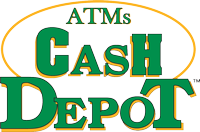 This article is brought to you by Cash Depot.
This article is brought to you by Cash Depot.
“Everyone knows about swipe fees,” said Sean Burke, CEO of Cash Depot. “These fees are easy to see—retailers know exactly how much they’re spending to process digital and card payments.”
But cash—which is used in about 20% of transactions—isn’t free of expense, either. “People are more likely to take these expenses for granted because, for the most part, they’ve always been there,” said Burke.
Some of the cash-related expenses are easy to track. Shrinkage, for one. Cash lost to external theft is another. Bank fees are a third expense. The cost of equipment, such as bill counters, smart safes or cash recyclers, is also easy to monitor.
Harder to nail down, though, is the money spent on labor. Burke reports that on average, according to Cash Depot research, it takes 14 minutes to count a drawer by hand, and at a typical c-store, the staff spends an average of 15-20 hours a week just counting cash. “This is a substantial expense that often isn’t really monitored or managed very closely,” Burke said.
“Another thing to think about is getting that cash to an actual bank,” Burke said. He noted that bank branches are closing at a record pace. According to the Federal Deposit Insurance Corporation (FDIC), the number of bank branches peaked in 2009 at 82,490. In 2022, the most recent year for which there is data, there were just 69,905 bank branches. One result of the closings is the rise of banking deserts, communities that don’t have a bank within ten miles.
“At the very least,” Burke said, “what’s happening with the banking system has the potential to add another level of stress to c-store operators as trips to the bank for deposits and change take longer than ever—especially in rural areas.”
“Smart safes are a smart move,” Burke said, but not all smart safes are created equal. Depending on the system it may not save much time and effort. Many smart safes are single-note acceptors prompting c-stores to count the money beforehand and then manually enter it into the machine. Some machines also lack bill verifiers, which means a human has to follow manual verification methods.
Provisional credit, otherwise known as temporary credit or credit for cash, adds more fees on top of those already easily tracked. In this situation, a smart safe provider essentially lends the retailer funds equal to what’s in the smart safe. That can make day-to-day finances easier, but interest rates, which used to be negligible, are now substantial. Interest accrues daily from the moment the cash is entered into the smart safe until after it is picked up, processed and verified.
“When it comes to the costs involved in cash, it’s always beneficial for a retailer to take time to understand these costs. They might dig into them and realize they are happy with the status quo,” Burke said, “or they may decide to investigate what their options are.”
These aren’t the only ways that cash can cost retailers. Learn more about the costs of cash and cash recycling.
This is the first of a two-part series on cash management systems. Learn more about Cash Depot.